Founded in 1962, the Percussions de Strasbourg are world-renowned ambassadors of musical creation. With their exceptional repertoire, the group performs twentieth century masterpieces and commissioned new works with the same concerns: to bring life to a contemporary heritage while revisiting it constantly, and to continue to innovate in a context of artistic diversification.
Since its foundation, the group still stands at the heart of creation, thanks to its particular connections with contemporary composers and the diversity of its abilities in terms of musical formats: from duo to octet, from acoustics to electronics, from recitals to musical theater and dance, etc …
Having been dedicated more than 350 works, the group continues to maintain and develop its unique instrumentarium in the world. It has recorded many times and has received around thirty international awards, including a Victoire de la musique classique in 2017, which the Percussions de Strasbourg label won for its first record release, Burning Bright by Hugues Dufourt.
The daily commitment of the ensemble to educational activities is reflected in their various actions, particularly with the public in Hautepierre where the ensemble is in residence.
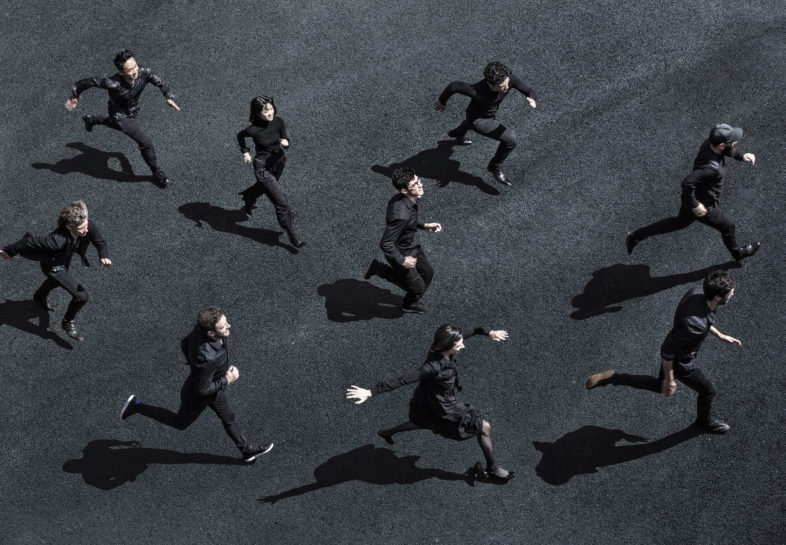
MORE THAN HALF A CENTURY OF CREATION
It all began in 1959, when Pierre Boulez was invited to conduct his work Le Visage Nuptial in Strasbourg. To form the large desk of percussions he needed, musicians from the Strasbourg Orchestra and the ORTF orchestra were brought together. The six young musicians – Bernard Balet, Jean Batigne, Lucien Droeller, Jean-Paul Finkbeiner, Claude Ricou and Georges Van Gucht – driven by a common innovative will and a strong friendship, then decided to create a percussion ensemble : repertoire, choice of instruments, everything had to be invented… the « Groupe Instrumental à Percussion » was born and later became « Les Percussions de Strasbourg ».
The first concert was given at the ORTF, on January 17th, 1962, in the presence of French composer Serge Nigg. Very quickly, the ensemble inspires the creation of a new repertoire by composers such as Messiaen, Stockhausen, Serocki, Kabelac, Ohana, Xenakis, Mâche or Dufourt … As Pierre Boulez says later: « A repertoire was necessary for the Groupe, but the Groupe has made the repertoire necessary. »
In 1967, the six percussionists perform Ionization of Varese, in agreement with the composer, while the score requires the participation of… thirteen percussionists. They carried this off with musical mastery and dramatic brio and opened the doors of success to a hitherto unprecedented musical genre.
Thereafter, the Percussions de Strasbourg will create and innovate relentlessly, travelling all around the world in major international festivals, from Berlin to Osaka, Persepolis to Sydney, via Royan, Donaueschingen, Edinburgh, Athens, Israel, Sao Paulo, New York, Montreal, etc.
Through their many travels and a strong collusion with the composers, they actively contribute to the sound research and the invention of new instruments, such as the sixxen designed by Xenakis.
Sixty years later, the band continues to revisit the contemporary heritage, and to innovate with the evolution of new technologies and the expansion of scenic practices and expression : that is the challenge to invent and explore the wide field of world percussion in the 21st century.
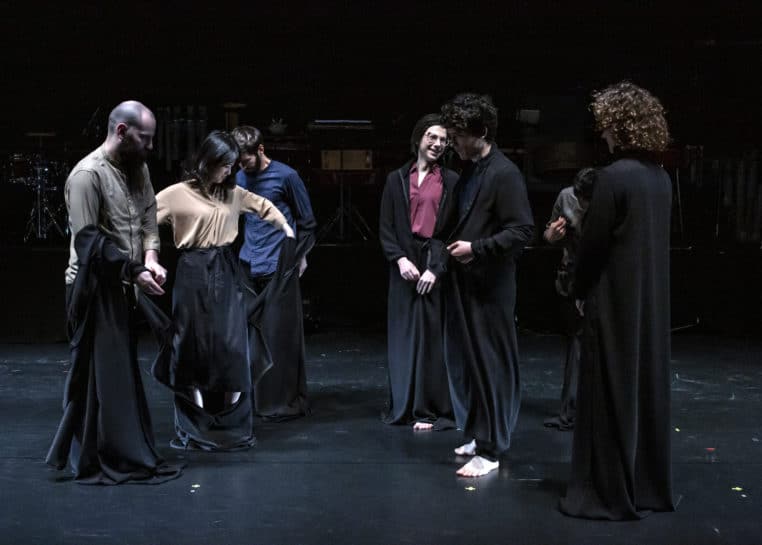
« The Percussions de Strasbourg went through the second half of the 20th century without striking a blow, at the furious pace of a catalog of creations where the original works are counted not by tens but by hundreds. {…} As sound artists, the Percussions de Strasbourg have contributed to «invent» – the term is well weighed – modern percussion, its writing and texture. » Mouvement
« For almost sixty years, the Percussions de Strasbourg has been gathering musicians who are now representative of every continent. It has expanded the Western sound beyond its boundaries. Besides the technical achievements and the originality of a repertoire that nothing connects to the past, the group has given a consistency to seemingly heterogeneous material and melted it into a single blend. »
Hugues Dufourt, 2019
“No matter how you look at it, the catalog of the Percussions de Strasbourg, dedicatee of more than 350 works, is quite simply unique”.
Guillaume Tion, Libération, 29 september 2020
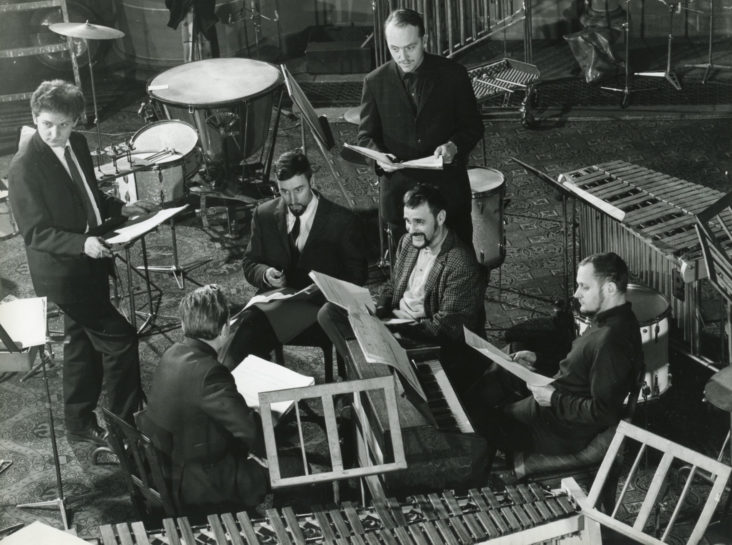
Archives 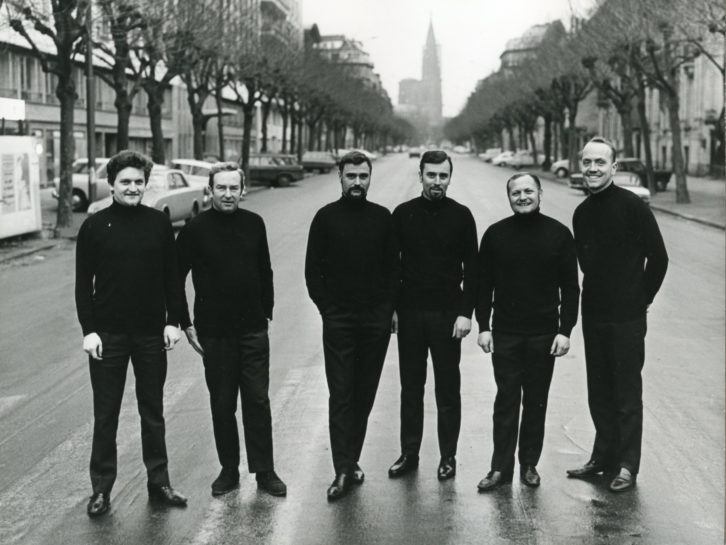
Archives 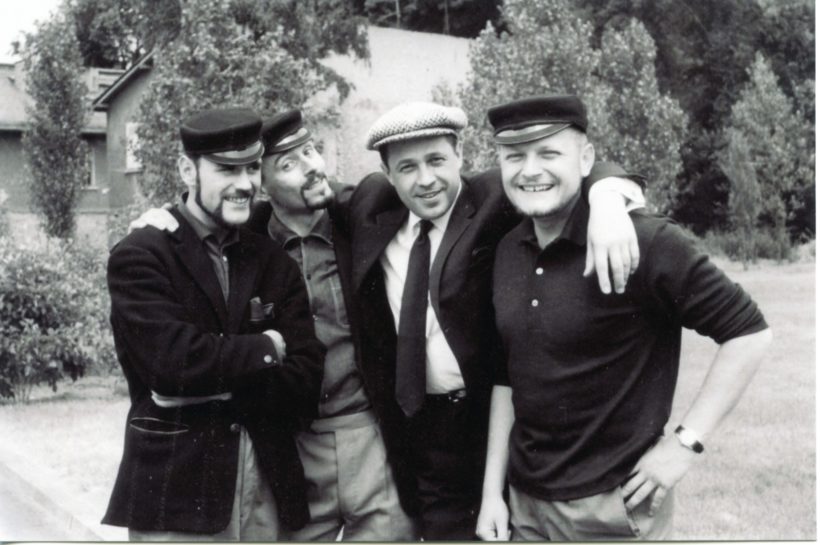
avec Pierre Boulez 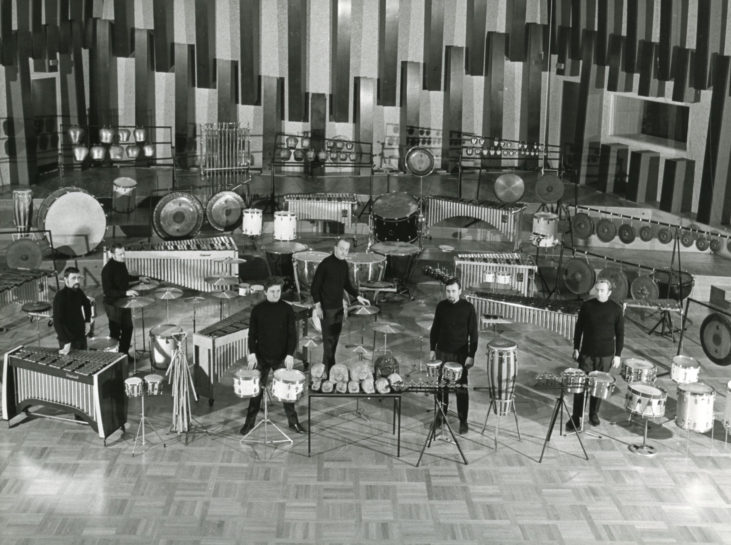
1971 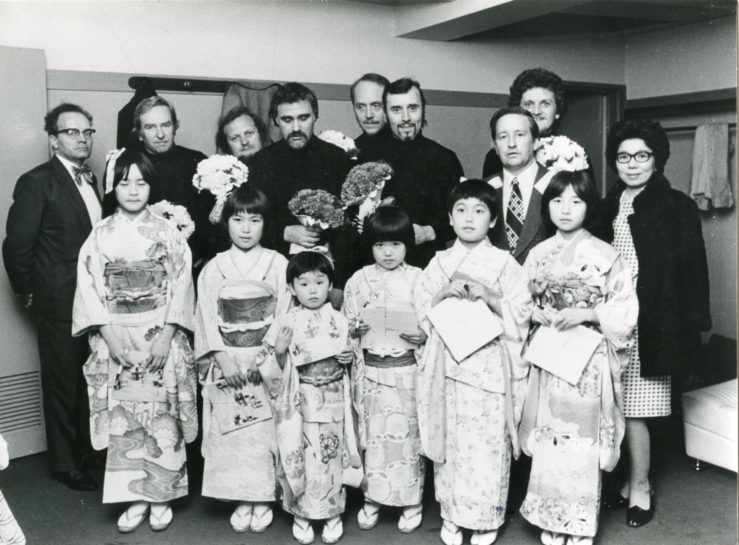
Osaka, 1978
